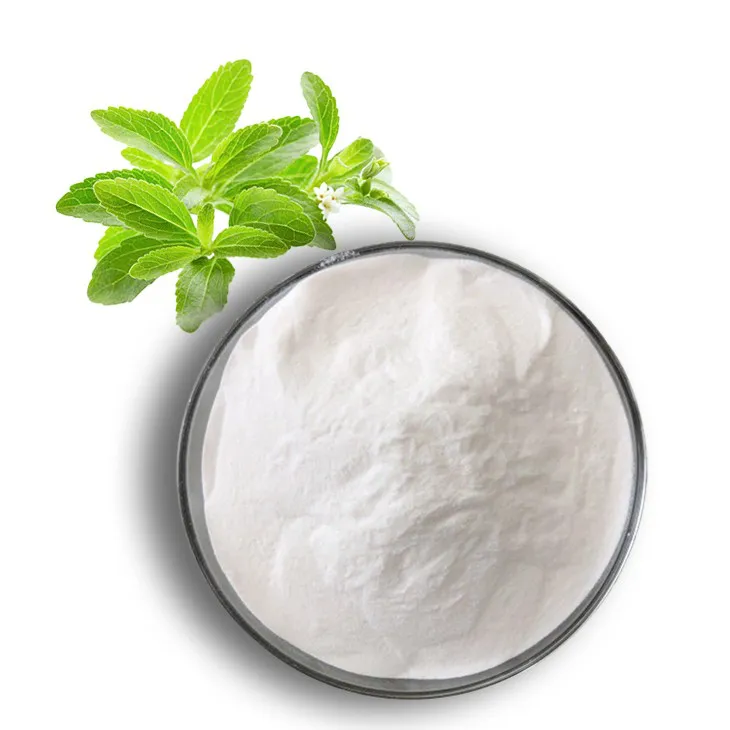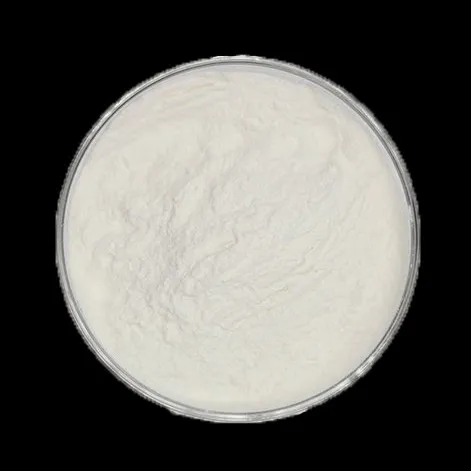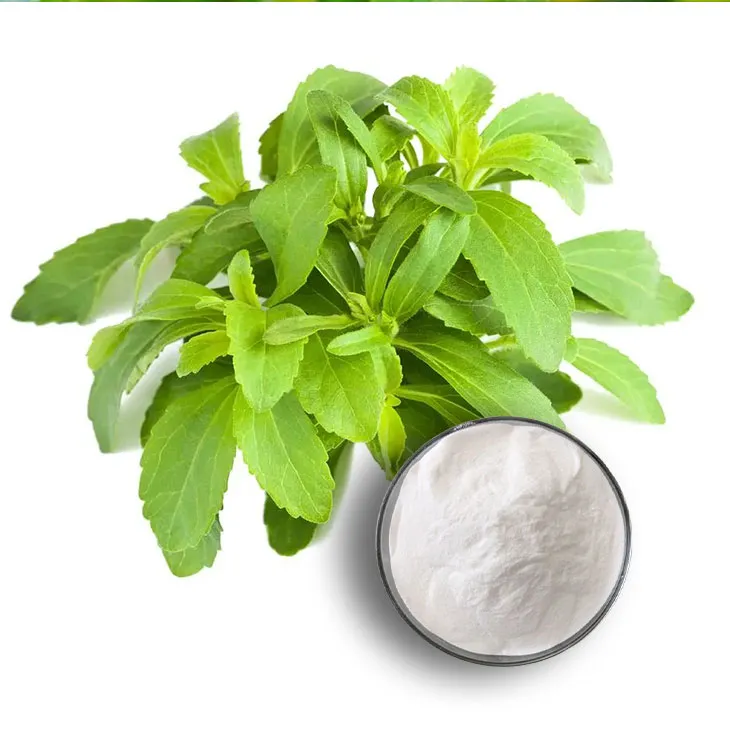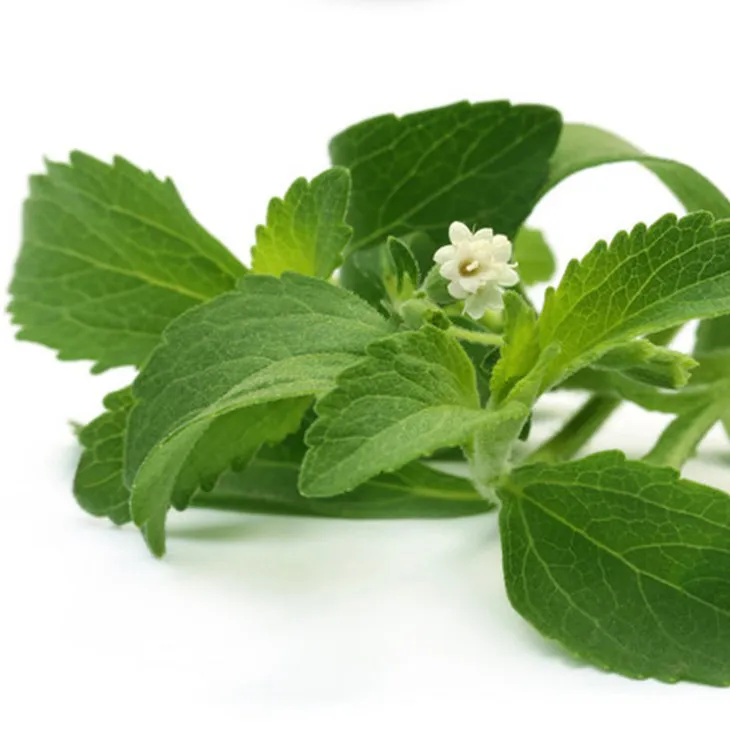- 0086-571-85302990
- sales@greenskybio.com
Best Types of Stevia Extract: A Guide to Selecting the Best Stevia Extract.
2024-11-12

1. Introduction
Stevia Extract has emerged as a popular natural sweetener in recent years, appealing to those who are health - conscious or looking for alternatives to refined sugars and artificial sweeteners. However, not all Stevia Extracts are created equal. There are various factors to consider when choosing the best Stevia Extract for your needs. This article aims to provide a comprehensive guide to help you make an informed decision.

2. Understanding Stevia
Stevia is a plant native to South America, specifically Paraguay and Brazil. The leaves of the stevia plant are known for their intense sweetness, which is much sweeter than sucrose (table sugar). Stevia has been used for centuries by indigenous people in South America for sweetening purposes.
The active compounds responsible for the sweetness in stevia are called steviol glycosides. These compounds are extracted from the stevia leaves to create stevia extract, which can then be used as a sweetener in various products, including food, beverages, and dietary supplements.

3. Purity Levels
3.1 High - Purity Stevia Extract
High - purity stevia extract is often considered the best option for those who want a pure and potent sweetening agent. This type of extract typically contains a high concentration of steviol glycosides and minimal impurities. It provides a clean, sweet taste without any off - flavors or aftertastes that can sometimes be associated with lower - quality stevia extracts.
When looking for high - purity stevia extract, check the label for the percentage of steviol glycosides. A higher percentage indicates a more concentrated and pure product. For example, some high - quality stevia extracts may contain 95% or more steviol glycosides.
3.2 Lower - Purity Stevia Extracts
Lower - purity stevia extracts may contain additional substances along with the steviol glycosides. These can include plant fibers, other compounds from the stevia leaf, or even additives used during the extraction process. While these extracts can still be sweet, they may have a more complex flavor profile and potentially a less intense sweetness compared to high - purity extracts.
Some lower - purity stevia extracts are marketed as "whole leaf stevia" or "crude stevia extract." These may be less refined and may not be suitable for those who are sensitive to additional flavors or substances in their sweeteners.

4. Extraction Methods
4.1 Solvent - Based Extraction
Solvent - based extraction is one of the common methods used to obtain stevia extract. In this process, solvents such as ethanol or water are used to dissolve the steviol glycosides from the stevia leaves. Ethanol - based extraction is often preferred as it can effectively extract the sweet compounds while leaving behind some of the unwanted substances.
However, it is important to ensure that the solvent is removed completely during the manufacturing process. Any residual solvent in the stevia extract could be a potential health concern. Reputable manufacturers will follow strict quality control procedures to ensure that the final product is free from solvent residues.
4.2 Water - Extraction
Water - extraction is another method for obtaining stevia extract. This method is considered more natural as it only uses water to extract the sweet compounds from the stevia leaves. Water - extracted stevia extract is often preferred by those who are looking for a more "natural" product, as it does not involve the use of solvents.
However, water - extraction may not be as efficient as solvent - based extraction in terms of obtaining a high - concentration of steviol glycosides. As a result, water - extracted stevia extracts may need to be processed further to increase the potency of the sweetening agent.
4.3 Supercritical CO2 Extraction
Supercritical CO2 extraction is a relatively new and advanced method for obtaining stevia extract. In this process, carbon dioxide is used in a supercritical state (a state where it has the properties of both a liquid and a gas) to extract the steviol glycosides from the stevia leaves.
This method has several advantages. It is a very clean and efficient extraction method, as CO2 is a non - toxic and environmentally friendly solvent. It can also produce a high - quality stevia extract with a high concentration of steviol glycosides and minimal impurities. However, the equipment required for supercritical CO2 extraction is expensive, which may result in a higher cost for the final product.

5. Potential Health Impacts
5.1 Benefits of Stevia Extract
Stevia extract is often touted for its potential health benefits. One of the main advantages is that it is a natural sweetener with a very low calorie content. This makes it an ideal option for those who are watching their calorie intake, such as people with diabetes or those on a weight - loss diet.
Unlike some artificial sweeteners, stevia extract does not raise blood sugar levels. It has also been shown to have antioxidant properties in some studies. The steviol glycosides in stevia extract may help to reduce oxidative stress in the body, which is associated with various chronic diseases.
5.2 Concerns and Precautions
While stevia extract is generally considered safe for consumption, there are some concerns that need to be addressed. Some people may experience an allergic reaction to stevia, although this is relatively rare. Additionally, in very large doses, stevia extract may have a laxative effect.
It is also important to note that some stevia products on the market may be blended with other sweeteners or additives. When choosing a stevia extract, it is essential to read the label carefully to ensure that you are getting a pure product and that you are aware of any potential allergens or additives.
6. Taste and Application
6.1 Taste Profile
The taste of stevia extract can vary depending on the purity and extraction method. High - purity stevia extracts with a high concentration of steviol glycosides tend to have a pure, sweet taste that is similar to sucrose but much sweeter. However, some people may detect a slightly bitter or licorice - like aftertaste, especially with lower - quality stevia extracts.
Water - extracted stevia extracts may have a more "natural" or earthy flavor compared to solvent - based extracts. Supercritical CO2 - extracted stevia extracts are often reported to have a very clean and pure taste, with minimal aftertaste.
6.2 Applications in Food and Beverages
Stevia extract can be used in a wide variety of food and beverage applications. In baking, it can be used to sweeten cakes, cookies, and other baked goods. However, due to its intense sweetness, it is important to use it in the correct proportions. For example, a very small amount of stevia extract may be equivalent to a large amount of sugar in terms of sweetness.
In beverages, stevia extract can be used to sweeten coffee, tea, and soft drinks. It is also a popular ingredient in diet and low - calorie beverages. When using stevia extract in beverages, it is important to note that it may not dissolve as easily as sugar, especially in cold beverages. Some stevia extracts are formulated to be more soluble in water or other liquids to address this issue.
7. Cost Considerations
The cost of stevia extract can vary widely depending on factors such as purity, extraction method, and brand. High - purity stevia extracts, especially those obtained using advanced extraction methods like supercritical CO2 extraction, tend to be more expensive. This is due to the higher cost of production associated with these methods.
Lower - purity stevia extracts or those obtained using more traditional extraction methods may be less expensive. However, it is important to consider the overall quality and suitability for your needs when making a cost - based decision. Sometimes, paying a little more for a high - quality stevia extract can be a better investment in the long run, especially if you are using it on a regular basis.
8. How to Choose the Best Stevia Extract
When choosing the best stevia extract, consider the following factors:
- Purity: Look for a high - purity stevia extract with a high percentage of steviol glycosides if you want a pure and potent sweetener.
- Extraction method: Consider your preference for a natural or more efficient extraction method. If you prefer a more natural option, water - extraction or supercritical CO2 extraction may be a better choice. However, if cost is a factor, solvent - based extraction may be more affordable.
- Health impacts: If you have specific health concerns, such as diabetes or a need to control calorie intake, stevia extract can be a good option. However, be aware of any potential allergic reactions or side effects.
- Taste: Taste different types of stevia extracts to find one that has a pleasant taste and minimal aftertaste for your intended applications.
- Cost: Balance the cost with the quality and features that are important to you.
9. Conclusion
Choosing the best stevia extract requires careful consideration of various factors, including purity levels, extraction methods, potential health impacts, taste, and cost. By understanding these aspects, you can make an informed decision and select a stevia extract that meets your specific needs, whether it is for sweetening your morning coffee, baking your favorite treats, or simply as a natural alternative to refined sugars and artificial sweeteners.
FAQ:
What factors should be considered when choosing stevia extract?
When choosing stevia extract, several factors should be considered. Purity level is important. Higher - purity stevia extract is generally better as it contains fewer impurities. The extraction method also matters. Some extraction methods may be more natural and less likely to introduce harmful substances. Additionally, it's crucial to think about potential health impacts. Some stevia extracts may be more suitable for people with certain health conditions, such as diabetes, as they have a lower impact on blood sugar levels.
How can one determine the purity level of stevia extract?
Determining the purity level of stevia extract can be a bit complex. One way is to look at the product label. Reputable manufacturers usually provide information about the purity of their stevia extract. Another method is to research the brand and its manufacturing processes. Brands that follow strict quality control measures are more likely to produce high - purity stevia extract. Laboratory testing can also be done, but this is more difficult for the average consumer. However, some third - party organizations may test and rate stevia products, which can be a useful reference.
What are the different extraction methods for stevia extract?
There are several extraction methods for stevia extract. One common method is the water - based extraction. This method uses water to extract the sweet compounds from the stevia plant, which is considered a more natural and environmentally friendly process. Another method is the solvent - based extraction, which may use organic solvents. However, this method requires careful control to ensure that no harmful solvent residues remain in the final product. There are also some modern extraction techniques that combine different methods to optimize the extraction of the sweet components while maintaining high quality.
Are there any potential side effects of stevia extract?
For most people, stevia extract is considered safe. However, some people may experience mild side effects. In rare cases, some individuals may have an allergic reaction to stevia. Additionally, some stevia extracts may cause digestive discomfort in certain people, such as bloating or diarrhea. It's also important to note that some stevia products may be combined with other substances, and these additives could potentially cause side effects.
How does stevia extract compare to other natural sweeteners?
Stevia extract has some unique characteristics compared to other natural sweeteners. Unlike honey, which contains calories and can affect blood sugar levels, stevia extract is calorie - free and has a negligible impact on blood sugar. Compared to maple syrup, which is also high in calories, stevia extract offers a sweetening option without the added caloric load. However, different natural sweeteners may have different flavors, and some people may prefer the taste of other natural sweeteners over stevia extract.
Related literature
- The Health Benefits and Risks of Stevia Extract"
- "Analysis of Different Stevia Extract Extraction Processes"
- "Purity Standards in Stevia Extract Production"
- ▶ Hesperidin
- ▶ citrus bioflavonoids
- ▶ plant extract
- ▶ lycopene
- ▶ Diosmin
- ▶ Grape seed extract
- ▶ Sea buckthorn Juice Powder
- ▶ Beetroot powder
- ▶ Hops Extract
- ▶ Artichoke Extract
- ▶ Reishi mushroom extract
- ▶ Astaxanthin
- ▶ Green Tea Extract
- ▶ Curcumin Extract
- ▶ Horse Chestnut Extract
- ▶ Other Problems
- ▶ Boswellia Serrata Extract
- ▶ Resveratrol Extract
- ▶ Marigold Extract
- ▶ Grape Leaf Extract
- ▶ blog3
- ▶ blog4
- ▶ blog5
-
Organic Tongkat Ali extract powder factory.
2024-11-12
-
How to make powder with ashwagandha extract.
2024-11-12
-
Rosehip extract manufacturers from China.
2024-11-12
-
The best cat's claw extract in nature.
2024-11-12
-
Chinese Dandelion Leaf Extract Suppliers.
2024-11-12
-
Troxerutin
2024-11-12
-
Polygonum Cuspidatum Extract
2024-11-12
-
White Willow Bark Extract
2024-11-12
-
Acerola Juice Powder
2024-11-12
-
Mangosteen extract powder
2024-11-12
-
Maitake Mushroom Extract
2024-11-12
-
Bayberry Extract
2024-11-12
-
Grape Leaf Extract
2024-11-12
-
Giant Knotweed Extract
2024-11-12
-
Sophora Flavescens Root Extract
2024-11-12





















